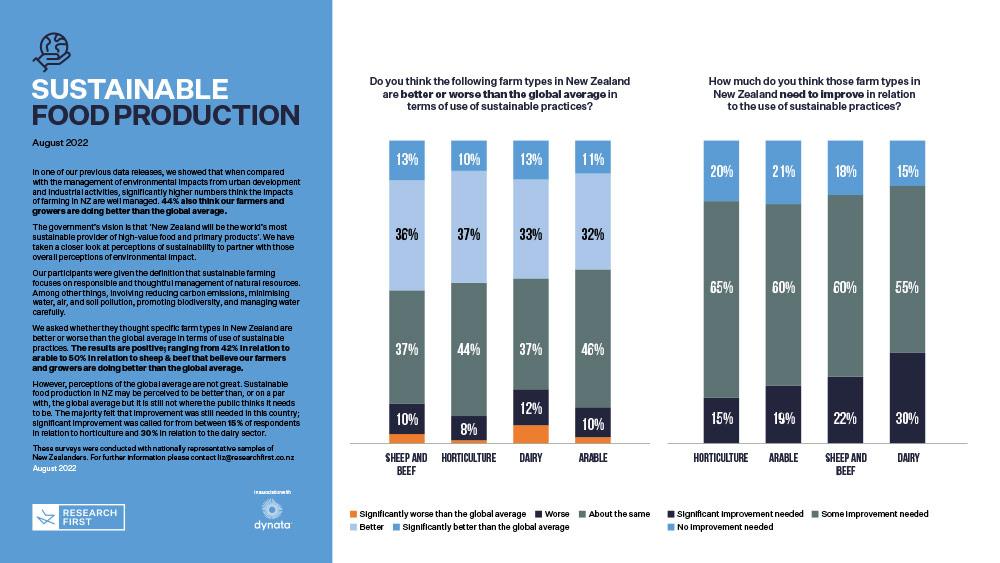Sustainable Food Production
In one of our previous data releases, we showed that when compared with the management of environmental impacts from urban development and industrial activities, significantly higher numbers think the impacts of farming in NZ are well managed. 44% also think our farmers and growers are doing better than the global average.
The government’s vision is that ‘New Zealand will be the world’s most sustainable provider of high-value food and primary products’. We have taken a closer look at perceptions of sustainability to partner with those overall perceptions of environmental impact.
Our participants were given the definition that sustainable farming focuses on responsible and thoughtful management of natural resources. Among other things, involving reducing carbon emissions, minimising water, air, and soil pollution, promoting biodiversity, and managing water carefully.
We asked whether they thought specific farm types in New Zealand are better or worse than the global average in terms of use of sustainable practices. The results are positive; ranging from 42% in relation to arable to 50% in relation to sheep & beef that believe our farmers and growers are doing better than the global average.
However, perceptions of the global average are not great. Sustainable food production in NZ may be perceived to be better than, or on a par with, the global average but it is still not where the public thinks it needs to be. The majority felt that improvement was still needed in this country; significant improvement was called for from between 15% of respondents in relation to horticulture and 30% in relation to the dairy sector.



